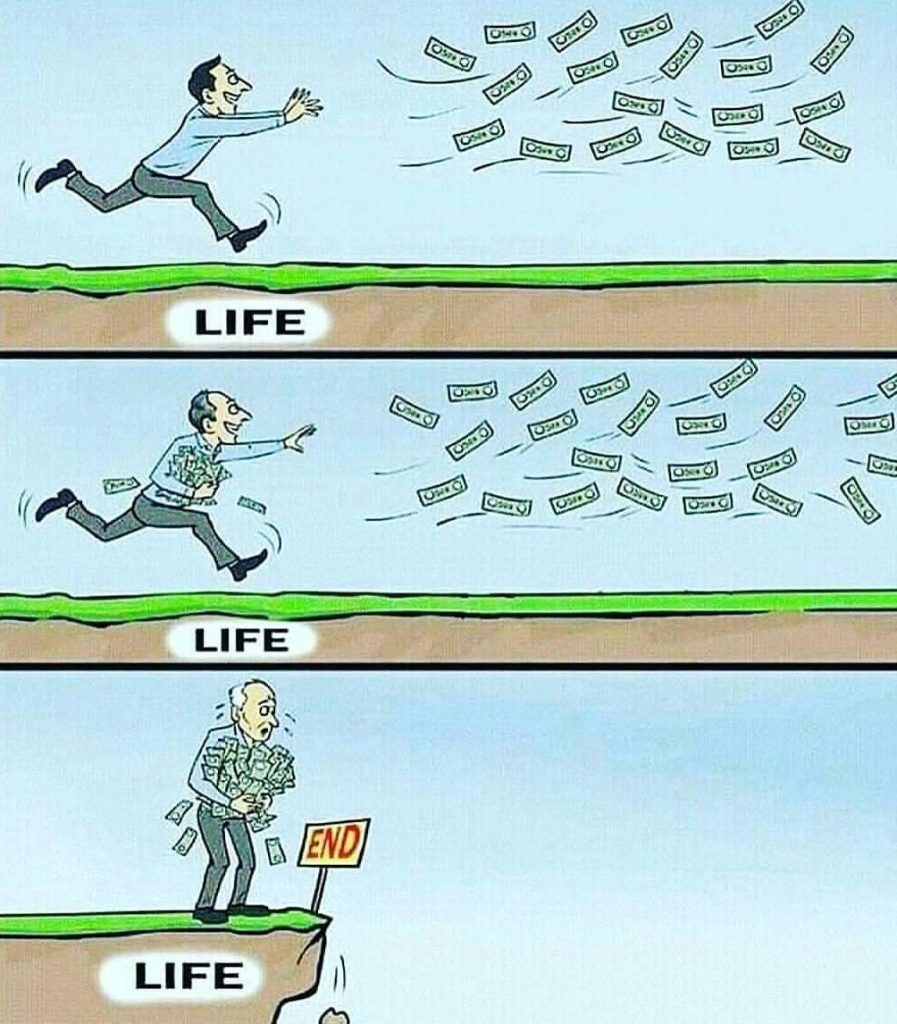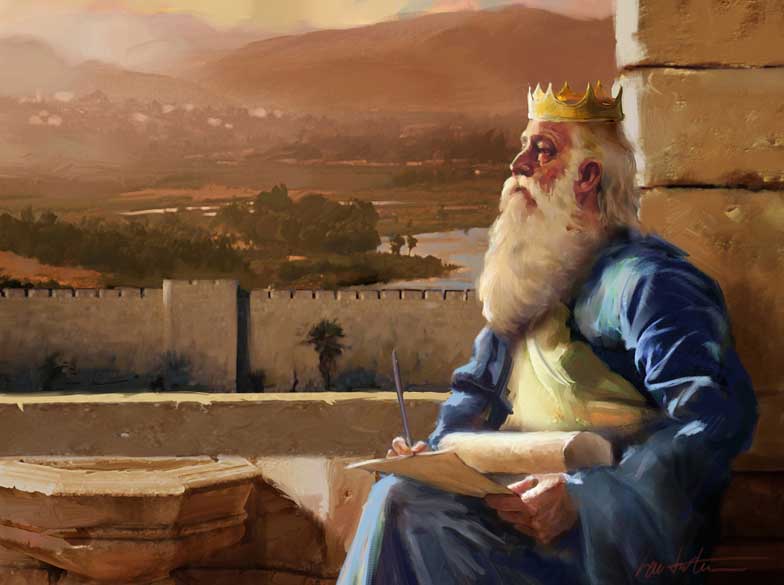
I want to share how the Gospel became meaningful to me. This was a journey impacted by Solomon and his whole-hearted pursuit of pleasure and wisdom. This will allow you to better have a personal insight on the articles on this website. (Oh and the basic info … my name is Ragnar Oborn – Swedish – and I live in Canada. I am married and we have a son. I studied at University of Toronto, University of New Brunswick and Acadia University)
Restlessness in a Privileged Youth
I was born into an upper middle-class professional family. Originally from Sweden, we immigrated to Canada when I was young. Then I grew up while living abroad in several countries – Algeria, Germany and Cameroon. Finally I returned to Canada for university. Like everyone else I wanted (and still want) to experience a full life. One characterized by contentment, a sense of peace, and of meaning and purpose – along with meaningful connections to others.
:max_bytes(150000):strip_icc()/83903036-56a14f723df78cf772697ef5.jpg)
Living in these different societies, religions and secular, and being an avid reader, exposed me to many different ideas about ‘truth’ and what a ‘full life’ meant. I observed that I (and most in the West) had unprecedented wealth, technology and opportunity to achieve these goals. But the paradox was that this full life seemed so elusive.
I noticed that relationships were more disposable and temporary than that of previous generations. Terms like ‘rat race’ was used to describe our lives. I was told that if we can get just ‘a little bit more’ then we would arrive. But how much more? And more of what? Money? Scientific knowledge? Technology? Pleasure?
Living for what?

As a young person, I felt angst probably best described as a vague restlessness. My father was an expatriate consulting engineer in Africa. So I hung out with other wealthy, privileged, and educated Western teenagers. But life there was quite simple with little to amuse us. Thus my friends and I dreamed about returning to our home countries and enjoying TV, good food, opportunities, and the ease of Western living. Then we would be ‘satisfied’.
But when I would visit Canada or Europe, after the first bit of excitement the restlessness would return. And worse, I also noticed it in the people who lived there all the time. Whatever they had (which was a lot by any measure) there was always a need for more. I thought I would find ‘it’ when I had a popular girlfriend. And for a while, this seemed to fill something within me, but after a few months, restlessness would return. I thought when I got out of high school then I would ‘arrive’. Then it was when I could get a driver’s license and gain independence – then my search would be over.
Now that I am older I hear people speaking of retirement as the ticket to satisfaction. Is that it? Do we spend our whole lives chasing one thing after the other? We keep thinking the next thing around the corner will give it to us, and then … our lives are over? It seems so futile!
The Wisdom of Solomon
During these years the writings of Solomon made a deep impact on me. Solomon (950 BCE), a king of ancient Israel famous for his wisdom, wrote several books in the Bible. In Ecclesiastes, he described this same restlessness that I was experiencing.
The man who had everything…
He wrote:
1 I said to myself, “Come now, I will test you with pleasure to find out what is good.” But that also proved to be meaningless.2 “Laughter,” I said, “is madness. And what does pleasure accomplish?” 3 I tried cheering myself with wine, and embracing folly—my mind still guiding me with wisdom. I wanted to see what was good for people to do under the heavens during the few days of their lives.

I undertook great projects: I built houses for myself and planted vineyards. 5 I made gardens and parks and planted all kinds of fruit trees in them. 6 I made reservoirs to water groves of flourishing trees. 7 I bought male and female slaves and had other slaves who were born in my house. I also owned more herds and flocks than anyone in Jerusalem before me. 8 I amassed silver and gold for myself, and the treasure of kings and provinces. I acquired male and female singers, and a harem as well—the delights of a man’s heart. 9 I became greater by far than anyone in Jerusalem before me. In all this my wisdom stayed with me.
10 I denied myself nothing my eyes desired;
Ecclesiastes2 :1-10
I refused my heart no pleasure.
My heart took delight in all my labor,
and this was the reward for all my toil.
Riches, fame, knowledge, projects, women, pleasure, kingdom, career, wine… Solomon had it all – and more of it than anyone else of his day or ours. The smarts of an Einstein, the riches of a Bill Gates, the social/sexual life of a Mick Jagger, along with a royal pedigree like that of Prince William in the British Royal family – all rolled into one. Who could beat that combination? You would think Solomon, of all people would have been satisfied. But he concluded:
But miserable to the point of madness
The words of the Teacher, son of David, king in Jerusalem:
2 “Meaningless! Meaningless!”
says the Teacher.
“Utterly meaningless!
Everything is meaningless.”3 What do people gain from all their labors
at which they toil under the sun?
4 Generations come and generations go,
but the earth remains forever.
5 The sun rises and the sun sets,
and hurries back to where it rises.
6 The wind blows to the south
and turns to the north;
round and round it goes,
ever returning on its course.
7 All streams flow into the sea,
yet the sea is never full.
To the place the streams come from,
there they return again.
8 All things are wearisome,
more than one can say.
The eye never has enough of seeing,
nor the ear its fill of hearing.
9 What has been will be again,
what has been done will be done again;
there is nothing new under the sun.
10 Is there anything of which one can say,
“Look! This is something new”?
It was here already, long ago;
it was here before our time.
11 No one remembers the former generations,
and even those yet to come
will not be remembered
by those who follow them.12 I, the Teacher, was king over Israel in Jerusalem. 13 I applied my mind to study and to explore by wisdom all that is done under the heavens. What a heavy burden God has laid on mankind! 14 I have seen all the things that are done under the sun; all of them are meaningless, a chasing after the wind.
Ecclesiastes 1:1-14
Life … Folly and Chasing after the Wind
11 Yet when I surveyed all that my hands had done
and what I had toiled to achieve,
everything was meaningless, a chasing after the wind;
nothing was gained under the sun.12 Then I turned my thoughts to consider wisdom,
and also madness and folly.
What more can the king’s successor do
than what has already been done?
13 I saw that wisdom is better than folly,
just as light is better than darkness.
14 The wise have eyes in their heads,
while the fool walks in the darkness;
but I came to realize
that the same fate overtakes them both.15 Then I said to myself,
“The fate of the fool will overtake me also.
What then do I gain by being wise?”
I said to myself,
“This too is meaningless.”
16 For the wise, like the fool, will not be long remembered;
the days have already come when both have been forgotten.
Like the fool, the wise too must die!17 So I hated life, because the work that is done under the sun was grievous to me. All of it is meaningless, a chasing after the wind. 18 I hated all the things I had toiled for under the sun, because I must leave them to the one who comes after me. 19 And who knows whether that person will be wise or foolish? Yet they will have control over all the fruit of my toil into which I have poured my effort and skill under the sun. This too is meaningless. 20 So my heart began to despair over all my toilsome labor under the sun. 21 For a person may labor with wisdom, knowledge and skill, and then they must leave all they own to another who has not toiled for it. This too is meaningless and a great misfortune. 22 What do people get for all the toil and anxious striving with which they labor under the sun? 23 All their days their work is grief and pain; even at night their minds do not rest. This too is meaningless.
Ecclesiastes 2:11-23
Solomon Tried everything ‘under the sun’
Hardly happy! In one of his poems, The Song of Songs, he records an erotic, red-hot love affair that he was having. This would be the very thing that seems most likely to provide life-long satisfaction. But in the end, the love affair did not give him sustained satisfaction.
Wherever I looked, either among my friends or in society, it seemed like Solomon’s pursuits for a full life were what everyone was trying. But he had already told me that he had not found it on those paths. So I sensed that I would not find it there and would need to look on a road less traveled.
Along with all these issues I was bothered by another aspect of life. It troubled Solomon as well.
19 Surely the fate of human beings is like that of the animals; the same fate awaits them both: As one dies, so dies the other. All have the same breath; humans have no advantage over animals. Everything is meaningless. 20 All go to the same place; all come from dust, and to dust all return. 21 Who knows if the human spirit rises upward and if the spirit of the animal goes down into the earth?
Ecclesiastes3:19-21
Woody Allen vs. Solomon
Death is utterly final and reigns absolutely over us. As Solomon said, it is the fate of all people, good or bad, religious or not. Woody Allen directed and released the movie You Will Meet A Tall Dark Stranger. It is a funny/serious look at death. In a Cannes Film Festival interview, he revealed his thoughts about death with his well-known humor.

“My relationship with death remains the same – I’m strongly against it.All I can do is wait for it. There is no advantage to getting older – you don’t get smarter, you don’t get wiser, you don’t get more mellow, you don’t get more kindly – nothing happens. But your back hurts more, you get more indigestion, your eyesight isn’t as good and you need a hearing aid. It’s a bad business getting older and I would advise you not to do it if you can avoid it.”
BBC News, 2010
He then concluded with how one should face life given the inevitability of death.
“One must have one’s delusions to live. If you look at life too honestly and too clearly life does become unbearable because it’s a pretty grim enterprise. This is my perspective and has always been my perspective on life – I have a very grim, pessimistic view of it… I do feel that it [life] is a grim, painful, nightmarish, meaningless experience and that the only way that you can be happy is if you tell yourself some lies and deceive yourself.”
BBC News, 2010
So are those our only choices? Either take the honest route of Solomon resigned to utter hopelessness and futility. Or take that of Woody Allen and ‘tell myself some lies and deceive myself’ so I can live under a more happy ‘delusion’! Neither seemed very attractive. Closely linked with death was the question of eternity. Is there really a Heaven, or (more alarmingly) is there really a place of eternal judgment – a Hell?
In my senior year of high school, we had the assignment to collect one hundred pieces of literature (poems, songs, short stories, etc.). Most of my collection dealt with these issues. It allowed me to ‘meet’ and hear many others who also wrestled with these same questions. And meet them I did – from all sorts of eras, educational backgrounds, lifestyle philosophies, and genres.
The Gospel – Ready to Consider it
I also included some of the well-known sayings by Jesus recorded in the Biblical gospels like:
10 The thief comes only to steal and kill and destroy; I have come that they may have life, and have it to the full.
John 10:10
It grew on me that maybe, just maybe, here was an answer to the questions I was asking. After all, gospel (which had just been a more-or-less meaningless religious word) literally meant ‘good news’. Was the Gospel really good news? Or was it more-or-less hearsay? To answer that I knew I needed to journey down two roads.
The Gospel Journey

First, I needed to start to develop an informed understanding of the Gospel. Second, having lived in different religious cultures, I had met people and read authors who had many objections to, and held ideas in opposition to, the Biblical Gospel. These were informed and intelligent people. I needed to think critically about the Gospel, without just being a mindless critic or an empty-headed believer.
There is a very real sense that when one embarks on this kind of journey one never totally arrives, but I have learned that the Gospel does provide answers to these issues that Solomon raised. Its whole point actually is to address them – a full life, death, eternity, and practical concerns like love in our family relationships, guilt, fear, and forgiveness. The Gospel’s claim is that it is a foundation that we can build our lives upon. One may not necessarily like the answers provided by the Gospel. One may not agree with them or believe them. But given that it addresses these very human questions it would be foolish to remain uninformed of them.
I also learned that the Gospel at times made me quite uncomfortable. In a time when so much seduces us to just take it easy, the Gospel unapologetically challenged my heart, mind, soul, and strength that, though it offers Life, it is not an easy one. If you do take time to consider the Gospel you may find the same. A good place to start is to look at one key sentence summarizing the Gospel message